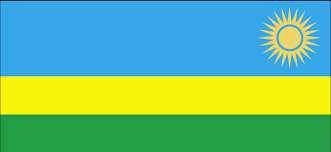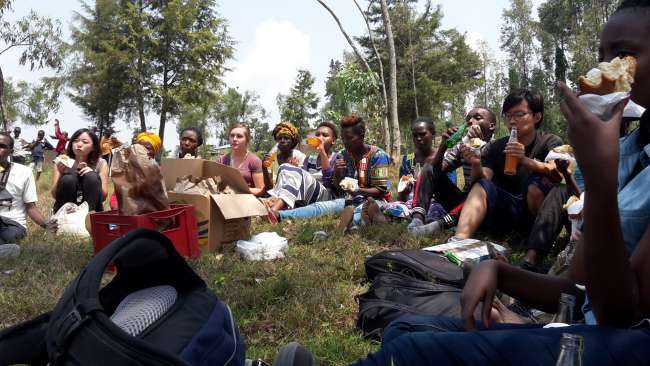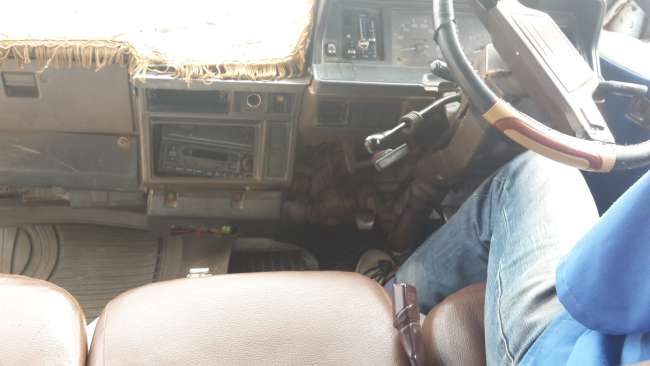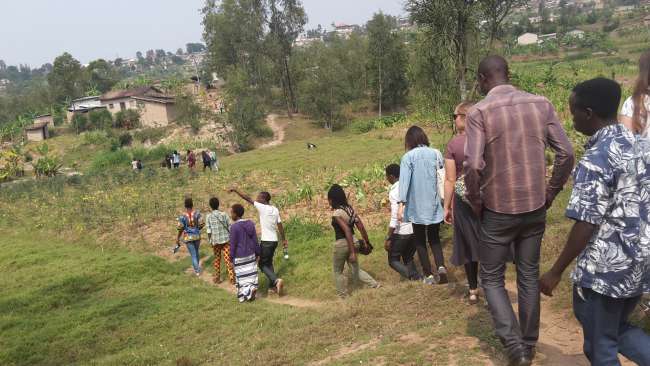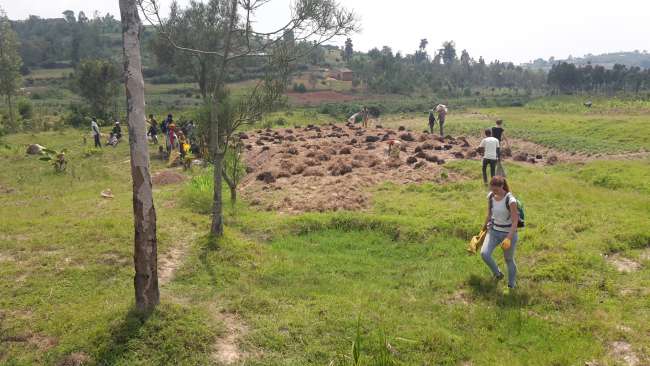Travel to Nyanza
Buga: 16.01.2017
Biyan kuɗi zuwa Newsletter
Today we visited a Reconciliation project that was set up by our course lecturer. In this project, survivors of the genocide and women whose husbands are in prison due to the murders they committed work together.
At first, it was not easy for these women to come together and talk, let alone work together. Over several sessions accompanied by different lecturers, an attempt was made to break down the walls between the women.
Today, these women live together in a village about 1 ½ hours from Huye and cultivate flowers together in a field, which they then decorate and sell.
I have never experienced anything like the journey there. First, we sat in a bus where neither the speedometer nor the fuel gauge worked. The steering wheel was on the wrong side, as this bus was apparently picked up from the junkyard and reconditioned. You don't really feel safe in these buses, but you have no other choice. At first, the roads were well-built, but then we had to turn off the paved road onto a bumpy path to reach the women's village.
Most of the route was not really designed for vehicles, especially not for a minibus. The driver often had to navigate narrow passages with a lot of finesse, drive over bridges that were simply built with logs, some of which were so far apart that a wheel could fit between them.
The journey felt like a roller coaster ride because the road was so uneven and went up and down. At one point, the bus was tilted so much that we thought it would tip over any second.
When we arrived safely, we were all relieved.
Initially, we were warmly welcomed by the women. The students from the university introduced us to each other.
Afterwards, we were supposed to help the women with their work. In this case, it meant carrying bags of cow dung mixed with compost to a field that was about a 5-minute walk away. If the path had been flat, it wouldn't have been such a problem. But there are no flat paths here in the villages. So we had to carry heavy bags downhill several times, some of which could only be carried by two people, and empty them out on the field. Then we walked back up to the village to refill the bags.
Of course, we also had about 30 degrees Celsius and hardly any shade on the way.
Some of us were really exhausted and glad when it was finally announced that we could stop after the 5th or 6th round.
Afterwards, we sat in a circle in a meadow with the women. The students had brought drinks and some food with them. So everyone could strengthen themselves first.
Johanna and I felt a bit uncomfortable because there were small children with typical "hunger bellies" all around us, and we all sat there drinking cola and eating something like biscuits and donuts.
Afterwards, the women talked about their group and work, and our fellow students translated what they said and shared the experiences they had all had.
Then we were all given the chance to ask questions. There was a very comprehensive discussion, but unfortunately, I often missed the connection because we are still not so deep into the history here to understand and comprehend everything.
But in any case, this day was very impressive and interesting. After running twice, we were pretty tired, especially because of the sun, and it was very hard for us to help. However, the women easily ran up and down the mountain with the bags on their heads, as if it were no problem at all and at most a minimal effort.
But I also found it very impressive that this project really worked, that former enemies were able to live together, forgive each other, and even develop friendships after two years.
I think projects like this give this country, but also all of us, a lot of hope when it comes to reconciliation.
On the way back, we were stopped by police officers. Until today, we don't know exactly what the problem was. However, the driver had to get out, show several documents and the warning triangle, and still pay a fine.
Such checks seem to be more frequent lately.
As Germans, we found it interesting that the police officers didn't care at all about the condition of the bus, for example, that the speedometer didn't even work. I think if the police were to start paying attention to such things here, none of the buses that are traveling on the roads here would be allowed to continue.
Fortunately, after 15 minutes we were able to continue and soon we were safely back in Huye.
In the whole time here, I have never been so happy about a mostly cold shower.
In the evening, we had a lecture that we survived completely exhausted.
Biyan kuɗi zuwa Newsletter
Amsa (2)
Thomas
Sehr guter Bericht. Der Bus ist aus England, oder Japan, da herrscht Linksverkehr ihr Düsseldorf, deshalb das Lenkrad auf der anderen Seite! Aber es stimmt natürlich, die Busse in England sind schon viel unsicherer als bei uns, wenn sie in England dann M Ende sind werden sie nach Kongo exportiert, dort gerichtet und mit Gewinn nach Ruanda verscherbelt. Und dann dienen sie dort noch 20 Jahre als Basis-infrasruktur... Ich glaube du wirst sehr geläutert sein wenn du zurück bist und einiges mit anderen Augen sehen. Sehr gut!Thomas
Dussel, nicht Düsseldorf, der Spell Checker hat versagt! 
